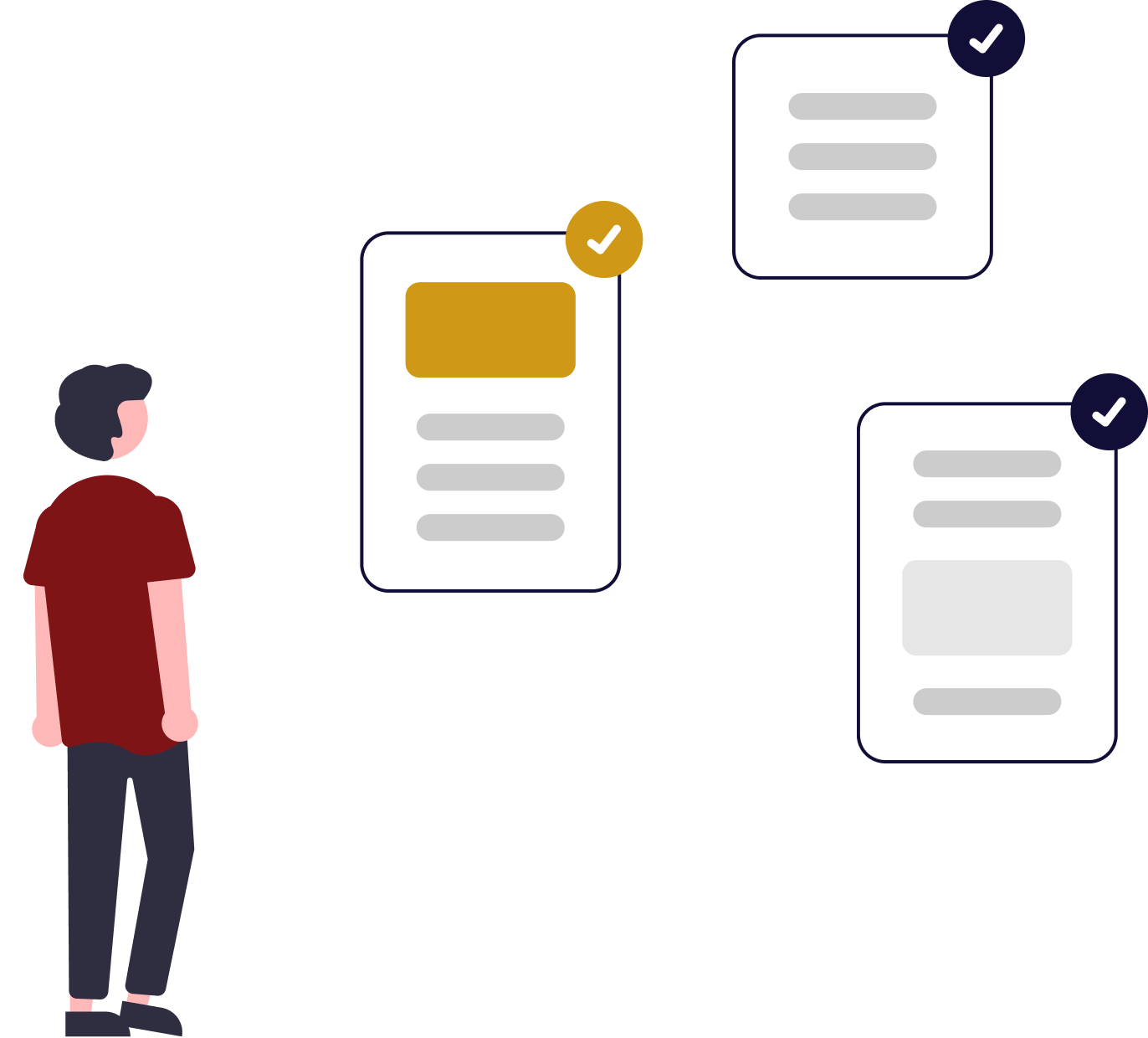Rupani Academy is a candidate school for the Middle Year Program (MYP). The school is pursuing authorization for MYP as an IB World school. Only schools authorized by the IB Organization can offer any of its four academic programs: the Primary Programme (PYP), the Middle Years Programme (MYP), the Diploma Programme, or the Career-related Programme (CP). Candidate status gives no guarantee that authorization will be granted. For further information about the IB and its Programmes, visit http://www.ibo.org.
IB Learner Profile
Learner involves in the processes of curiosity and develop skills to ask questions, conduct research, and demonstrate independence in learning.
Learners explore ideas, issues, and concepts that hold local and global significance before, during and after assessment.
Learner applies creative and critical thinking approach to analyze, and solve complex problems during assessment.
Learner can easily seek, evaluate, and comprehend different points of view and easily facilitate their growth and learning from those experiences.
Learner shows concern and kindness for the well-being of others and demonstrate it via different assessed and non-assesses tasks.
Learner show bravery in dealing with familiar and unfamiliar and uncertain situations.
Ensure an existing balance in different types of assessments and recognize and accept the independence that they have with school community and with the world in which they live.
Learner show their ability to use various languages and communication channels to convey information in assessments.
Demonstrate deep sense of respect, fairness, and justice not only for themselves but also for various groups and societies around them.
Having the ability to understand what makes them stronger and accepting their limitations so that they can best learn and develop their selves as a reflective person.
Assessment Policy
Rupani Academy is an International Baccalaureate candidate school, pursuing authorization as an IB World School for the IB Primary Years programme. IB World Schools share a common philosophy—a commitment to high-quality, challenging, and international education—that we believe is important for our students.
Rupani Academy Mission Statement
To provide quality education focusing on life skills and personality development for the upbringing of a generation of productive and contributing global citizens.
Rupani Academy Vision Statement
A sustainable, educated, and pluralistic society for future generations.
Philosophy of Assessment at Rupani Academy
At Rupani Academy we believe that assessment is an essential/crucial part of an effective teaching and learning process. It is primarily conducted to support and improve student learning. Teachers can obtain, analyze and interpret evidence derived from a set of assessments.
The IB mission statement can be viewed at: https://ibo.org/about-the-ib/mission/
The IB learner profile can be viewed at: https://ibo.org/benefits/learner-profile/
International Baccalaureate Mission Statement
The International Baccalaureate® aims to develop inquiring, knowledgeable, and caring young people who help to create a better and more peaceful world through intercultural understanding and respect.
To this end, the organization works with schools, governments, and international organizations to develop challenging programmes of international education and rigorous assessment.
These programmes encourage students across the world to become active, compassionate, and lifelong learners who understand that other people, with their differences, can also be right. (IBO)
Assessment Practices at Rupani Academy:
Rupani Academy assesses students against age-related learning outcomes, IB Learner Profiles, concepts and Approaches to Learning through diagnostic, formative, and summative assessments. Performance of students, in both Formative and Summative assessment is shared with parents, discussing students’ behavior, participation, progress and challenges in face to face meetings. Assessment at Rupani Academy is considered integral to collaborative planning, teaching, and learning.
To this end, the organization works with schools, governments, and international organizations to develop challenging programmes of international education and rigorous assessment.
These programmes encourage students across the world to become active, compassionate, and lifelong learners who understand that other people, with their differences, can also be right. (IBO)

Philosophy of Assessment at Rupani Academy
At Rupani Academy we believe that assessment is an essential/crucial part of an effective teaching and learning process. It is primarily conducted to support and improve student learning. Teachers can obtain, analyze and interpret evidence derived from a set of assessments, to, further review and plan effectively. Assessment motivates, encourages, and inspires student’s passion for learning when it is delivered in a timely and reasonable manner.
Assessment Practices at Rupani Academy
Rupani Academy assesses students against age-related learning outcomes, IB Learner Profiles, concepts and Approaches to Learning through diagnostic, formative, and summative assessments. Performance of students, in both Formative and Summative assessment is shared with parents, discussing students’ behavior, participation, progress and challenges in face to face meetings. Assessment at Rupani Academy is considered integral to collaborative planning, teaching, and learning.

Purpose of Assessment
- 1. Assessment is an integral part of the teaching and learning process, as it determines how well students are achieving the age appropriate/level wise learning outcomes.
- 2. Assessment affects decisions about grades, placement, advancement, instructional needs, and curriculum.
- 3. It provides feedback to students on their own learning and their performance as per the criteria outlined in the task/curriculum.
- 4. It helps in summing- up pupils’ progress to inform students and teachers on what has been achieved and also to identify students' individual learning needs.
- 5. It provides school with processes through which to crtically evaluate the programme running in the system. This further helps in determining the effectiveness and credibility of inculcating a curriculum within school community.
- 6. It is helps to keep track or record of children's learning progress, areas of improvement and school related activities to inform parents for their support and care.
- 7. Continuous assessments allow teachers the freedom not to be teaching only for the next test or examination, it also allows students the freedom to learn, express and reflect in ways that truly enhance their academic education and personal development.

Assessment Strategies at Rupani Academy
Rupani Academy assesses students to appraise, evaluate and document knowledge, skills, attitudes, action and learning process of children to enhance their learning and fulfil educational needs and goals. Rupani academy uses a variety of formal and informal assessment techniques to measure learning.
Forms of Assessment
Diagnostic Assessment
Rupani academy applies Diagnostic Assessment to evaluate student’s strengths, weaknesses, knowledge, and skills before their unit of inquiry, at the beginning of a course, grade level, unit, or lesson.
Tools for Diagnostic Assessment:
The following tools are used for Diagnostic Assessment:
Summative Assessment
Rupani academy uses summative assessment to evaluate student’s learning at the end of a unit of inquiry by comparing it against standards or benchmarks designed by Rupani Academy. It is used by teachers to inform parents about the quality of student’s learning, whether their classes are at age-related expectations or not.
Tools for Summative Assessment:
The following tools are used for the Summative Assessment of students in the Academy:
Formative Assessment
Rupani academy applies Formative Assessment to assess and observe students’ in an on- going way to assess their learning to provide ongoing feedback, enhance their learning and identify skills and concepts that students are struggling to understand, during the unit of inquiry, course, or in a lesson.
Tools for Formative Assessment:
Rupani Academy uses the following tools ensure formative (continuous assessment) in the classes:
Use of Assessment Tools
Rupani Academy applies various tools to assess student’s conceptual understanding, progress, knowledge and skills at different grades or age level in accordance with the following
| S.no | Assessment Tools | Use in Grade |
|---|---|---|
| 01 |
Admission test Admission interview Mind map Initial writing prompts Running Records Observations Projects Portfolios Hand signals |
PP1 and PP2 |
| 02 |
Mind map Initial writing prompts Running Records Short quiz Classroom discussion Admission interview Admission test Observations Projects Portfolios Hand signals Rubrics Checklist Anecdotal records |
Grades 1 and 2 |
| 03 |
Rubrics and checklists Mind map Initial writing prompts Running Records Short quiz Classroom discussion Admission interview Admission test Observations Projects Portfolios Hand signals Unit test Term assessment |
Grade 3, 4 and 5 |
Students Progress Recording And Reporting
Assessment Record
Data relating to the academic achievement of all students of the Rupani Academy is organized and recorded using checklist, rubrics, and portfolios. Each teacher maintains an Assessment for Learning (AFL) folder that should contain information on each pupil in their classes, including targets and attributes. It should also include diagnostic, formative assessment, and summative assessment records.
Assessment Reporting
Students’ progress reports are shared with the parents three times in an academic year. Meetings are conducted with parents at the end of each term to share the progress of the children and area of improvement. Targets are set with the teachers based on the progress of each child and feedback of the parents. This policy is a working document and as such will be reviewed by the management and school leadership of the Academy annually based on the progressive levels offered and their assessment requirements.




